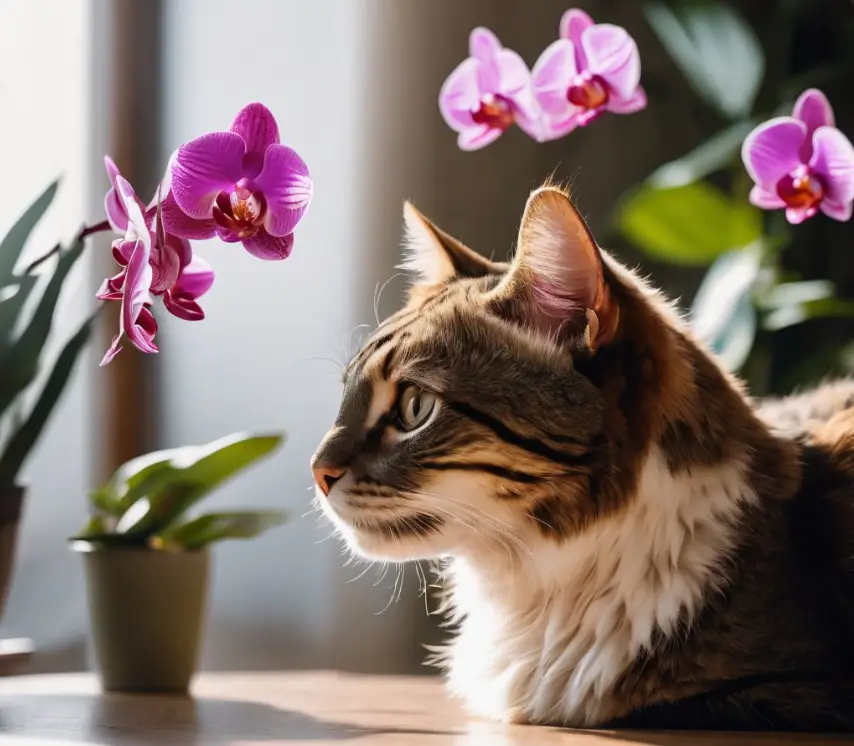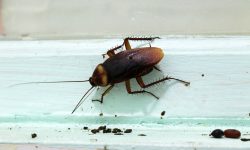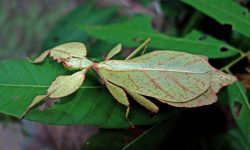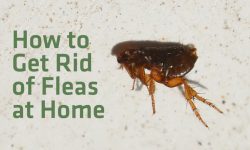Orchids are a popular choice for houseplants due to their beauty and variety, with blooms ranging from small and delicate to large and vibrant. Many people enjoy having orchids as indoor plants, but if you’re a cat owner, you might wonder: are orchids poisonous to cats? Understanding the safety of orchids around cats is essential for pet owners to ensure a safe and healthy home environment.
In this article, we’ll explore whether orchids are harmful to cats, the potential risks, and tips on keeping both your plants and your furry friend safe.
Are Orchids Toxic to Cats?

The short answer is: no, most orchids are not poisonous to cats. According to the American Society for the Prevention of Cruelty to Animals (ASPCA), most species of orchids are considered non-toxic to cats. This means that, generally, if your cat takes a nibble of your orchid, it should not suffer from poisoning. However, this does not mean that orchids are entirely without risk.
While orchids themselves are non-toxic, they can still cause mild digestive issues if ingested. Some cats, curious by nature, may bite or chew on houseplants, leading to mild symptoms such as vomiting or diarrhea. These symptoms are typically temporary and resolve on their own, but if they persist, consulting your veterinarian is advised.
Why Are Cats Attracted to Orchids?
Cats are naturally curious creatures and may be drawn to orchids and other plants out of curiosity. Several reasons might explain why your cat is interested in orchids:
- Texture and Smell: The texture of orchid leaves can be interesting to cats, especially if they enjoy chewing on plants. Orchids sometimes have a faint scent, which may also attract your cat’s attention.
- Playfulness: Orchids’ leaves and flowers can move slightly, which may stimulate a cat’s instinct to swat or nibble.
- Nutritional Curiosity: Some cats crave certain minerals or vitamins found in plants, which might make them try a bite.
What Happens If a Cat Eats Orchids?
In most cases, if a cat eats an orchid, the effects will be minor. Here’s what might happen:
- Mild Gastrointestinal Upset: If a cat chews on orchids, it may experience mild symptoms like vomiting, drooling, or diarrhea.
- Obstruction Risks: Large portions of orchid leaves or stems might cause a blockage in the digestive system if ingested in significant amounts.
- Potential Allergic Reaction: Though rare, some cats might show a mild allergic reaction, resulting in swelling, itching, or discomfort.
How to Keep Your Cat Safe Around Orchids
Even though orchids are not poisonous to cats, it’s wise to take some precautions:
- Place Orchids Out of Reach: If possible, keep orchids in locations that are hard for your cat to access, such as high shelves or hanging planters.
- Use Cat-Deterrent Sprays: Some sprays are safe to use on plants and act as a deterrent to cats. Ensure the spray is non-toxic and pet-safe.
- Offer Cat-Friendly Plants: Provide plants that are safe for cats, like catnip or cat grass. This may distract your cat from nibbling on orchids.
- Monitor Your Cat’s Behavior: If your cat shows persistent interest in your orchids, keep an eye on them. Redirecting their attention with toys or treats can help.
Other Houseplants That Are Dangerous for Cats
While orchids are generally safe, other common houseplants can be harmful or even deadly to cats. Here are a few plants that you should avoid if you have a cat:
- Lilies: Lilies are extremely toxic to cats and can cause severe kidney failure.
- Aloe Vera: Although beneficial to humans, aloe vera can cause vomiting and lethargy in cats.
- Pothos: Also known as Devil’s Ivy, pothos can cause mouth irritation, vomiting, and difficulty swallowing.
- Sago Palm: Every part of the sago palm is toxic to cats, especially the seeds, which can cause liver failure.
- Philodendrons: These plants contain calcium oxalate crystals that can lead to mouth irritation and digestive issues in cats.
Safe Plant Alternatives for Cat Owners
If you’re concerned about keeping plants around that might pose a risk to your cat, consider adding cat-safe plants to your home instead. Some great options include:
- Spider Plant: A popular indoor plant that’s safe for cats and adds a vibrant touch to any room.
- Boston Fern: Non-toxic to cats and provides a lush green accent.
- Calathea: Known for its unique, colorful leaves, calatheas are safe and add a splash of color to your décor.
- Cat Grass: This is a favorite among cats and is safe for them to nibble on.
How to Recognize Symptoms of Plant Poisoning in Cats
If you’re unsure whether your cat has ingested something toxic, here are a few symptoms to look out for:
- Drooling or foaming at the mouth
- Vomiting or diarrhea
- Lethargy or loss of appetite
- Difficulty breathing or excessive coughing
- Swelling around the mouth or face
If you notice any of these symptoms and suspect your cat has ingested a toxic plant, contact your veterinarian immediately.
Final Thoughts: Are Orchids Poisonous to Cats?
In summary, orchids are not poisonous to cats. While they are generally considered safe, it’s still a good idea to keep an eye on your cat around any plants. Although eating orchids may cause mild digestive upset, it is not likely to lead to severe harm.
Creating a safe home for both your cats and your plants is possible with a few precautions. By keeping orchids out of reach, providing alternative cat-safe plants, and being aware of symptoms of plant poisoning, you can enjoy the beauty of orchids without putting your furry friend at risk.






